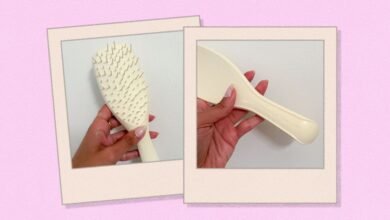Shocking Truth: Thinning Your Skin with Retinol is Actually Good!

Does Retinol Thin the Skin? Understanding the Facts
Many people have turned to retinol as a key component of their skincare routine, often led by its promise of youthful, vibrant, and clear skin. However, there has been an ongoing debate regarding whether retinol can thin the skin. In this article, we will delve into the details of retinol, how it works, and the truth behind the claim that it can cause skin thinning.
What is Retinol?
Retinol is a derivative of vitamin A, widely used in various skincare products due to its remarkable ability to promote cellular turnover. It accelerates the rate at which skin cells are replaced, leading to smoother, more refined skin texture. Additionally, retinol aids in stimulating collagen production, which helps to reduce the appearance of fine lines and wrinkles.
The Science Behind Retinol
Retinol works at a cellular level, where it binds to specific receptors in skin cells to initiate the production of new cells. This process not only improves skin texture and tone but also aids in combating acne. While many rave about the benefits of retinol, including its potential to fade dark spots and boost overall radiance, it’s key to consider its side effects, particularly regarding skin thinning.
Can Retinol Thin Your Skin?
There’s an ongoing misconception that retinol thins the skin. The reality is a little more complex. In the beginning, there may be a temporary thinning of the outermost skin layer (the stratum corneum) as the product stimulates exfoliation. This process, is often misinterpreted as permanent skin thinning. However, this eventual result can lead to healthier skin over time.
Overuse of retinol or starting with too high a concentration can lead to irritation, redness, and peeling, which may contribute to the perception that it thins the skin. In truth, when used appropriately, retinol can lead to a thicker dermis due to increased collagen production, thereby enhancing the skin’s overall resilience and health.
How to Use Retinol Effectively
To minimize side effects and maximize benefits, follow these guidelines when incorporating retinol into your skincare regime:
- Start Slow: Begin with a lower concentration (0.25% to 0.5%) and apply two to three times a week.
- Moisturize Adequately: Keep your skin well-hydrated to combat dryness and irritation.
- Apply at Night: Retinol can make skin sensitive to sunlight, so it’s best applied at bedtime.
- Use Sunscreen: Daily use of a broad-spectrum sunscreen is essential to protect your skin.
Potential Side Effects of Retinol
While retinol can be a game-changer in skincare, it is not without its drawbacks. Here are some potential side effects:
| Side Effect | Description |
|---|---|
| Dryness | Skin may feel tight and dry. |
| Redness | Skin may become inflamed, particularly in the early weeks of use. |
| Purge | Initial breakout may occur as the skin adjusts. |
| Photosensitivity | Increased sensitivity to sun can occur. |
Is Retinol Safe for Everyone?
Most skin types can safely use retinol, but it may not be suitable for extremely sensitive skin or those with conditions like eczema or rosacea without prior consultation with a dermatologist. Pregnant or nursing individuals should also avoid retinol due to potential risks to the baby.
Pros and Cons of Using Retinol
| Pros | Cons |
|---|---|
| Reduces fine lines: Clinically proven to diminish the appearance of wrinkles. | Initial irritation: May cause redness or dryness at the beginning. |
| Improves skin texture: Promotes a smoother, refined skin surface. | Purge phase: Initial breakouts can make you question its effectiveness. |
| Boosts collagen production: Contributes to firmer, more youthful skin. | Photosensitivity: Increases vulnerability to sun damage. |
Retinol Product Recommendations
When looking for quality retinol products, consider the following specifications:
| Product Name | Concentration | Formulation Type | Price |
|---|---|---|---|
| Neutrogena Rapid Wrinkle Repair | Retinol SA 0.1% | Serum | $29.99 |
| Olay Regenerist Retinol 24 | Retinol 0.1% | Moisturizer | $39.99 |
| Paula’s Choice 1% Retinol Booster | 1.0% | Concentrate | $49.00 |
Final Thoughts
In summary, retinol does not inherently thin the skin. When used properly, it can revitalize the skin, leading to increased thickness and resilience over time. Commit to a gradual introduction into your skincare routine, monitor your skin’s reaction, and always prioritize hydration and sun protection. Consult a dermatologist if you have any concerns or specific skin conditions. Retinol could well be your ticket to achieving a radiant complexion!





